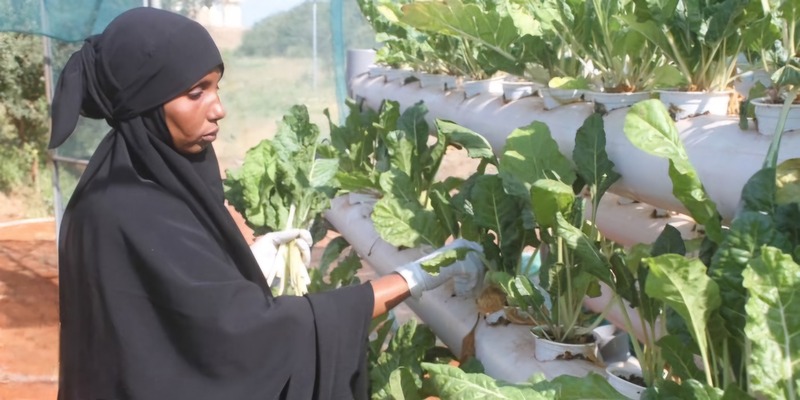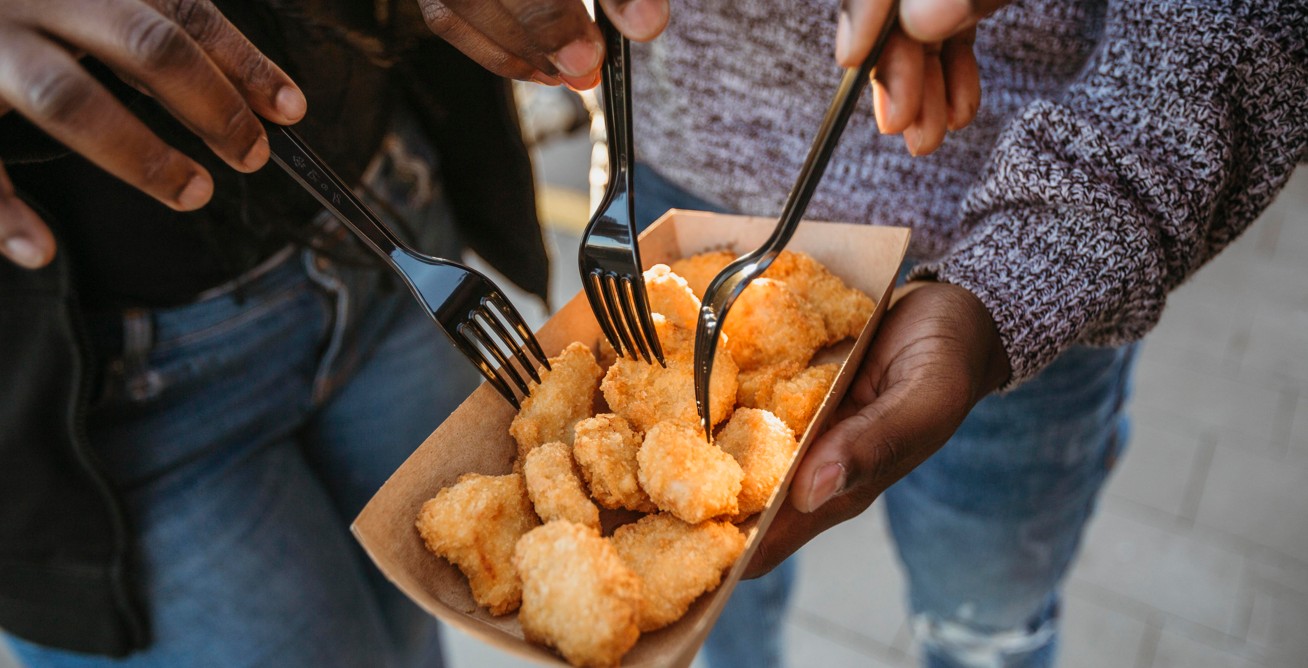Greenhouse farming transforms lives of displaced families in Southern Somalia

Fiiday shared that she earns $5 to $6 daily from this venture, which allows her family to eat three meals a day and meet other needs.
In Southern Somalia, internally displaced families are finding new ways to improve their living standards through greenhouse farming. In Baidoa, these families cultivate vegetables like tomatoes and lettuce in greenhouses on the city's outskirts to sustain themselves.
At the Garasweyne IDP camp, individuals such as Fiiday Ali are selling their produce to local vendors and restaurants. Speaking to Radio Ergo, Fiiday shared that she earns $5 to $6 daily from this venture, which allows her family to eat three meals a day and meet other needs.
More To Read
- AfDB grants full debt relief to Somalia after decades of economic turmoil
- Trump faces rising backlash over remarks targeting Somali immigrants
- Somalia welcomes first group of Sudanese students under new scholarship programme
- Factory farming in Africa: Development banks see it as a good idea, but it’s bad for the climate
- AU calls for rapid tech adoption in farming to shield continent from food crises
- Mogadishu’s Hamarweyne market shut for third day amid tax dispute
"This work brings happiness to my family. It has made our lives much easier. If one of my children gets sick today, we can manage," she said.
Fiiday, 43, has been supporting her family of nine children since her husband was injured and unable to work.
"I used to worry about everything, how my children would get food, education, and how we would improve our lives," she explained.
Displaced from Busul, 21 kilometres from Wajid in the Bakool region, due to severe drought in 2021, Fiiday and her family lost their three-hectare farm and 40 goats. Upon arriving at the IDP camps, she initially sold sesame sweets in Baidoa's streets, earning about $2 a day.
Now, around 300 people, including 205 women and 95 men, work on 29 greenhouse farms established by the NGO SOS Children's Villages in Buula-fiin, Horsed, and Garasweyne IDP camps. Many were previously farmers and adapted well to greenhouse cultivation.
New opportunities
Mohamed Isgowe Ali, 47, highlighted how the greenhouse project has provided new opportunities for his wife and seven children.
"My life has changed significantly; my children are attending school for the first time. I was previously unemployed," he told Radio Ergo.
Mohamed collaborates with 14 others on a greenhouse farm, tending to crops and maintaining the farm. They grow tomatoes, spinach, pepper, and lettuce, earning a good income from their sales. He has built a three-room iron-sheet house for his parents with a $3,000 loan, which he is repaying at $50 a month.
"My parents now have a house, and I support their bills. There has been a positive change. I hope to expand my farm one day," he said.
Mohamed and his family left their four-hectare farm in Derbi-biyodle village, 70 kilometers from Baidoa in 2021 due to the severe drought. They moved to the Horsed IDP camp in search of help and alternative livelihoods.
SOS Children's Villages have provided the infrastructure and equipment for the greenhouses, including water wells and pumps for irrigation, and have leased the farmland for five years starting in December 2023.
"The importance of this project lies in creating sustainable livelihoods for the beneficiaries, enabling them to support their meals and children's education," said Ali Abdullahi Suleyman, the coordinator of SOS in Baidoa.
Ali emphasised that while the IDP families used to receive intermittent aid that would run out after a few months, the greenhouse farms offered a long-term solution for supporting vulnerable families. He also noted that greenhouse farms use less water compared to traditional farming methods.
Top Stories Today
















































